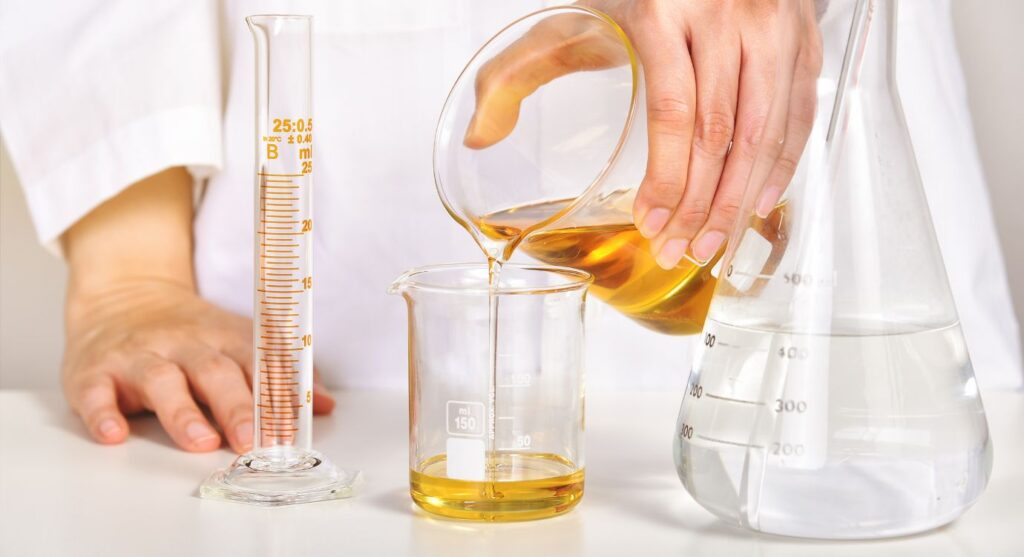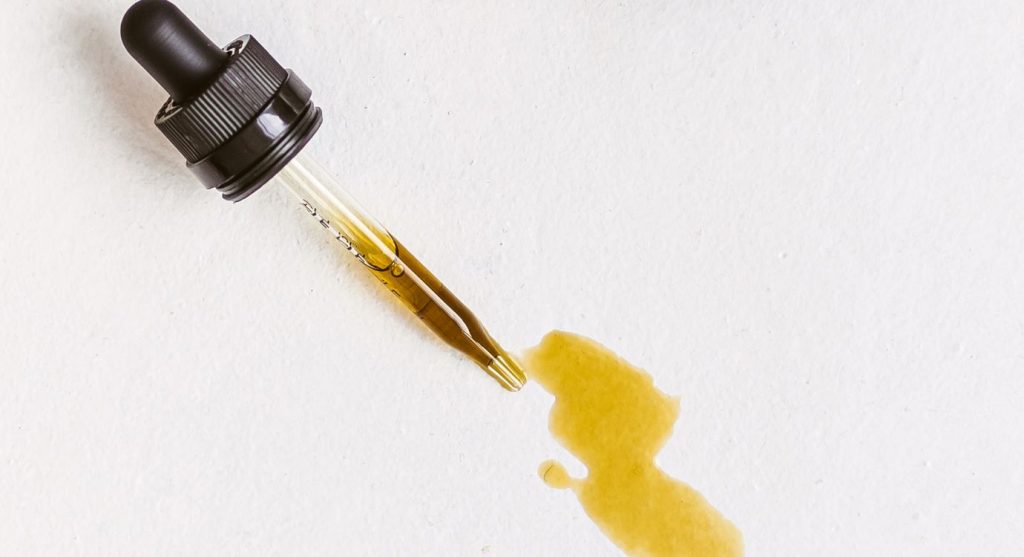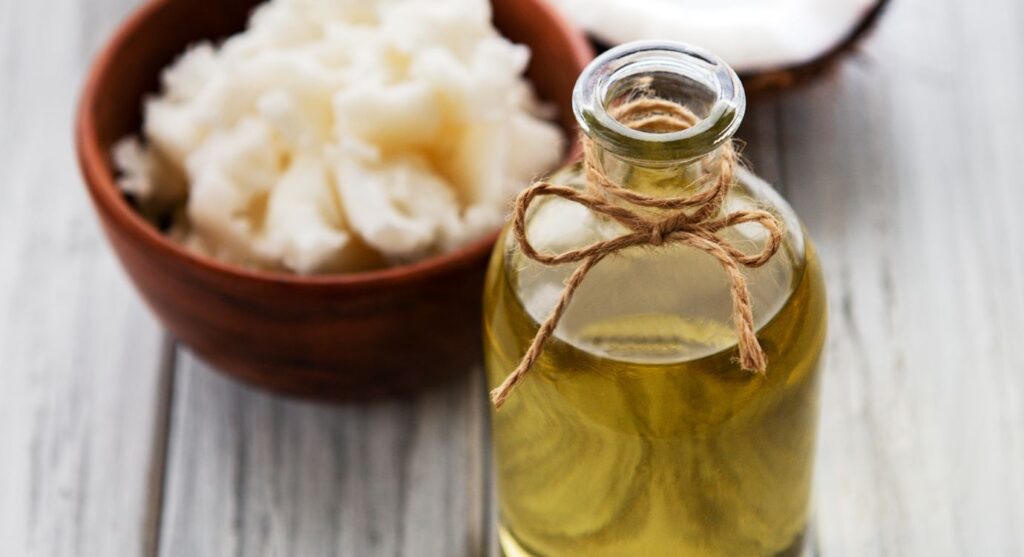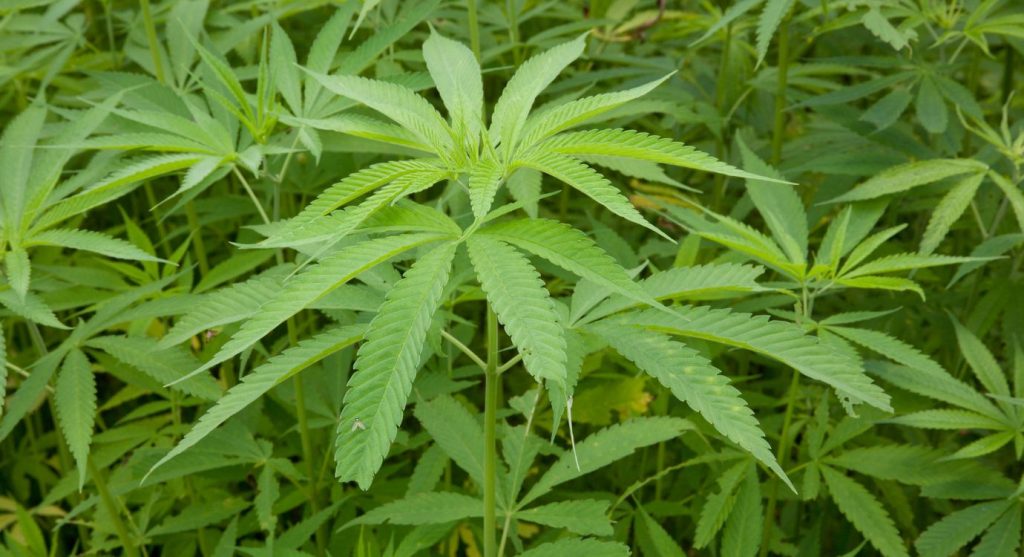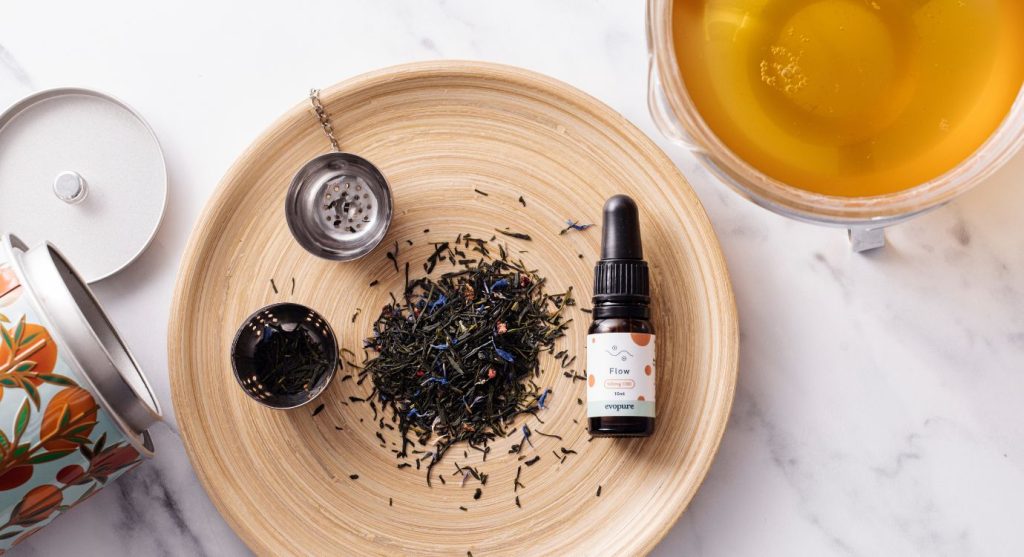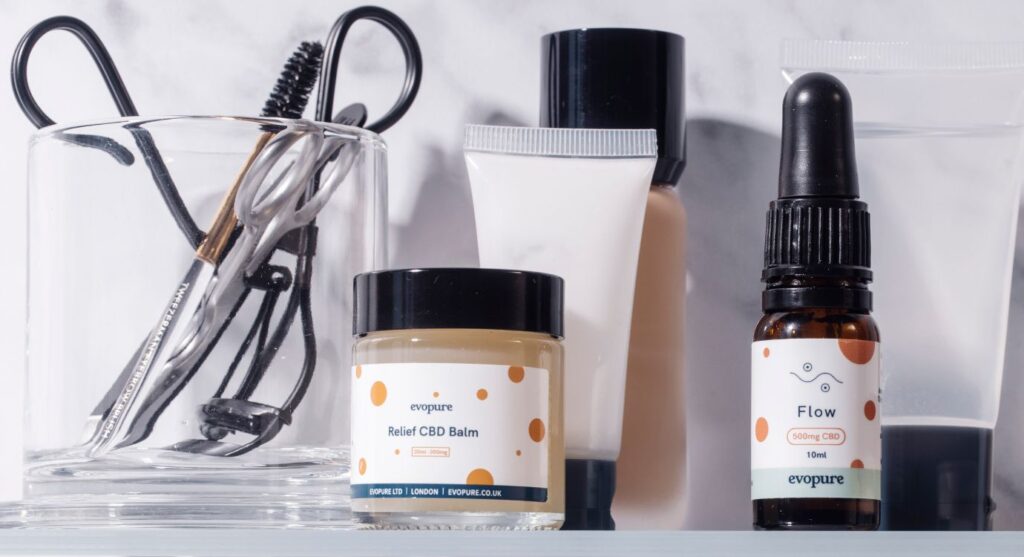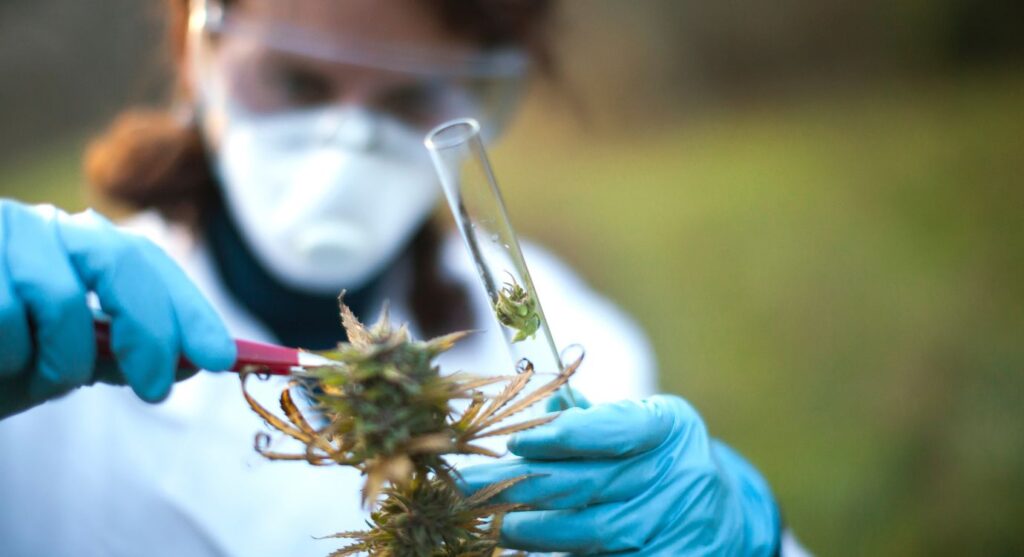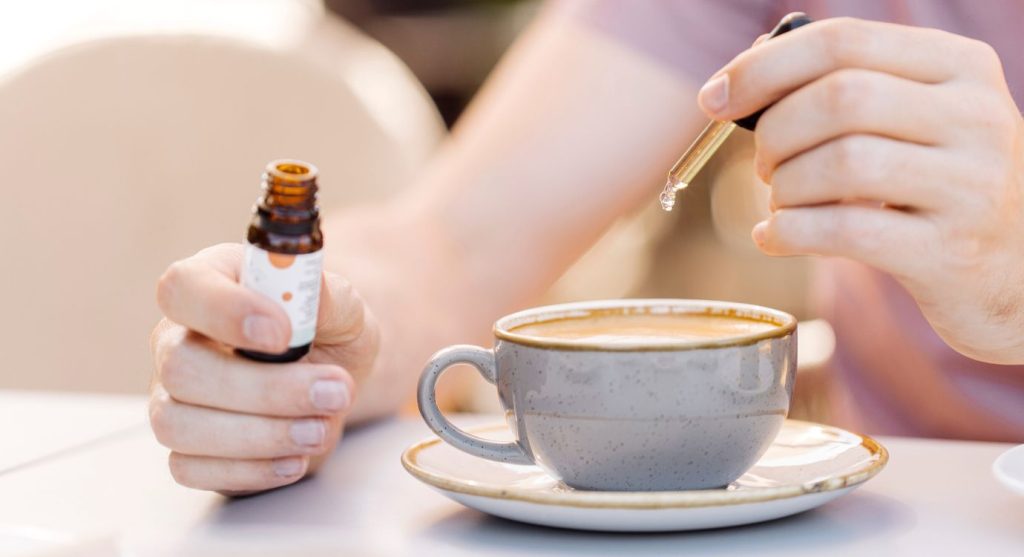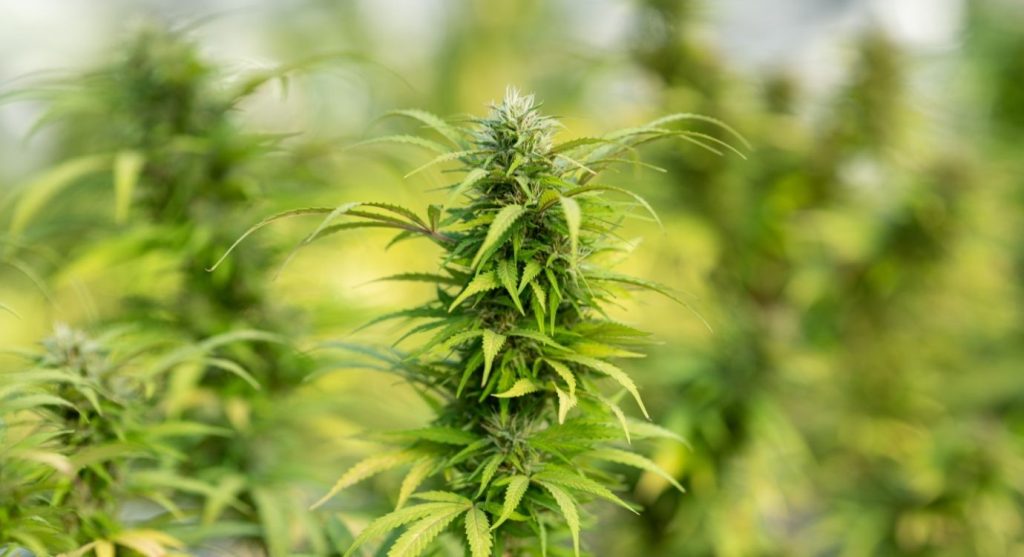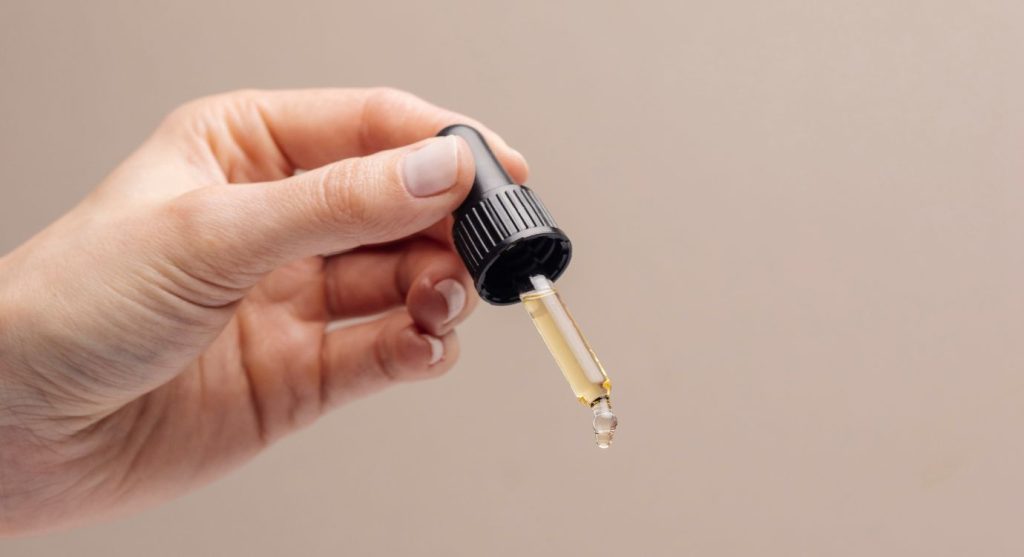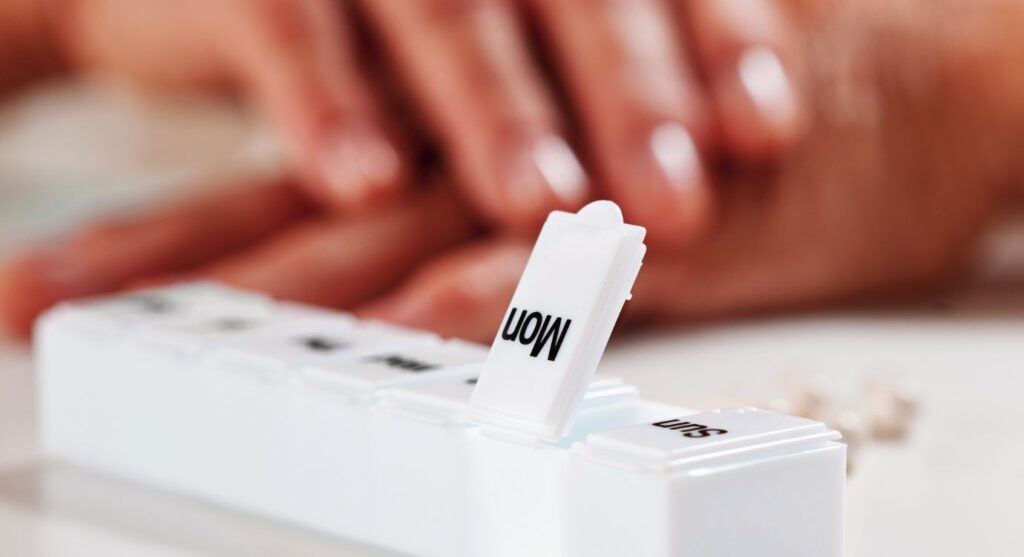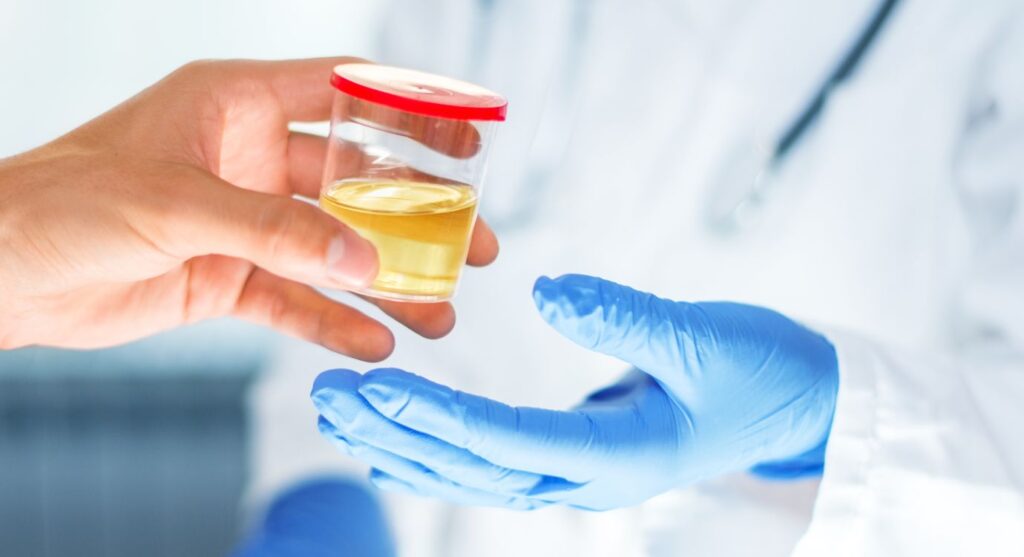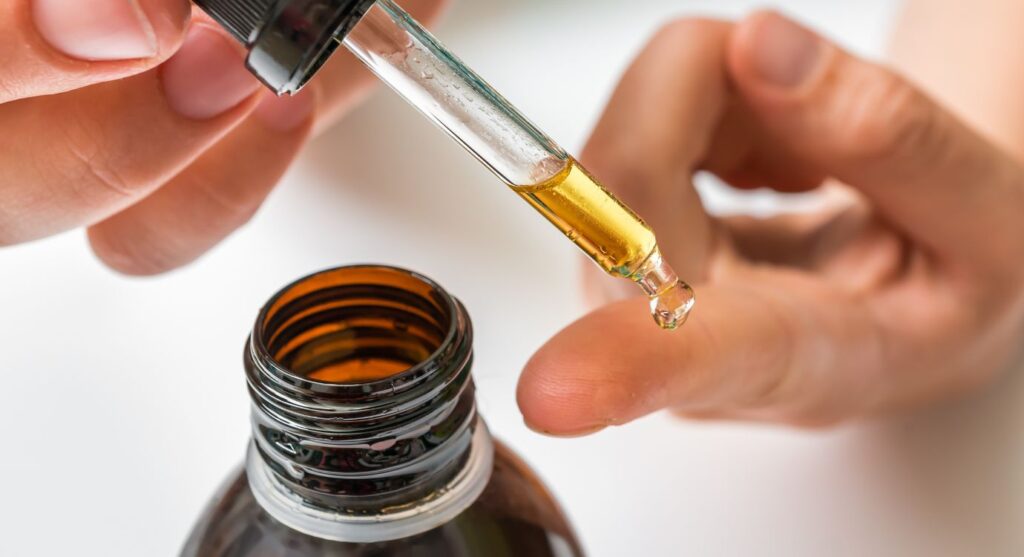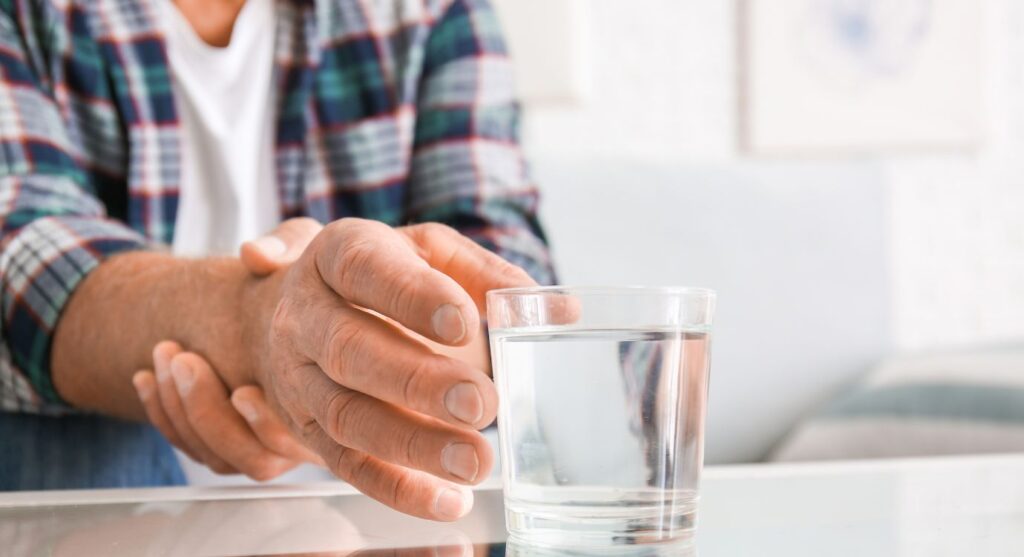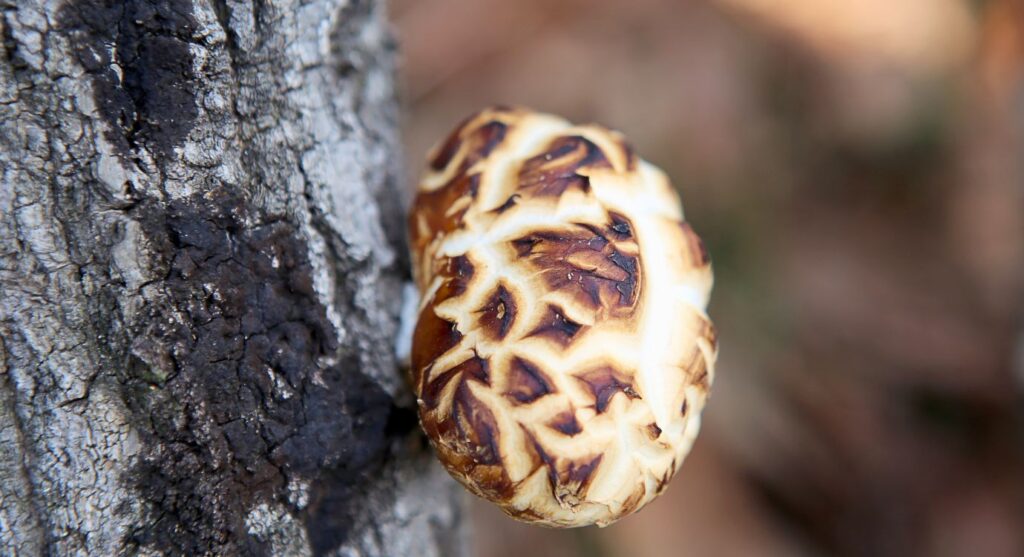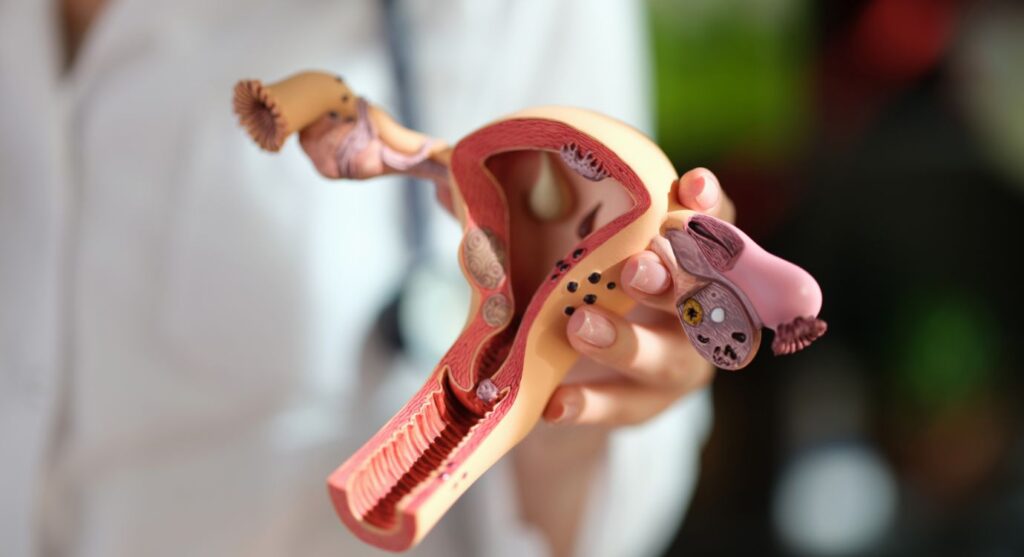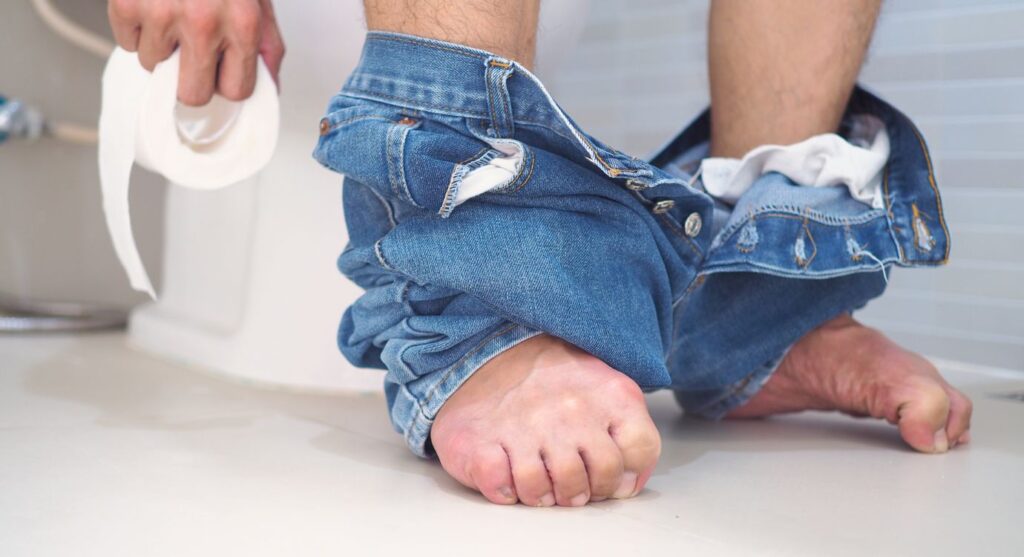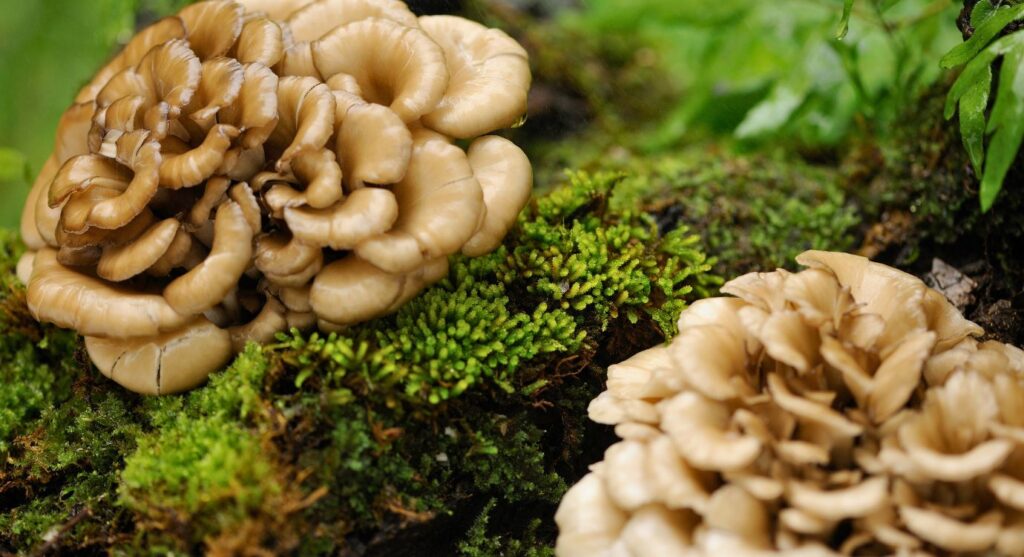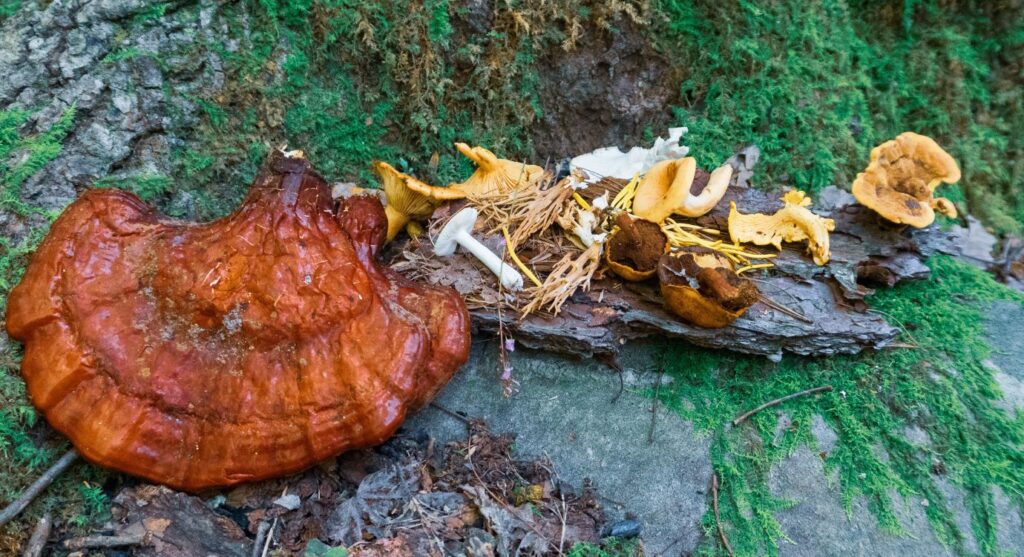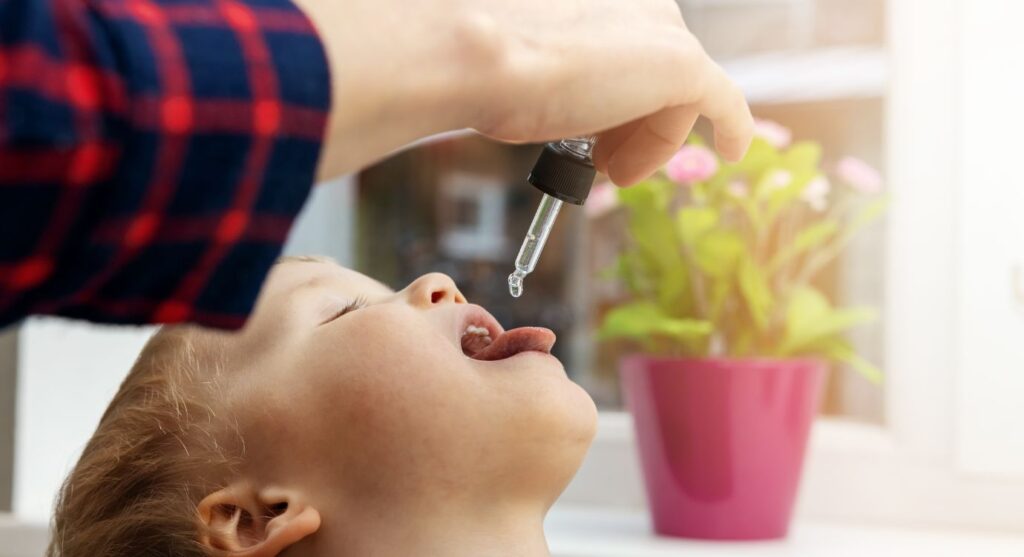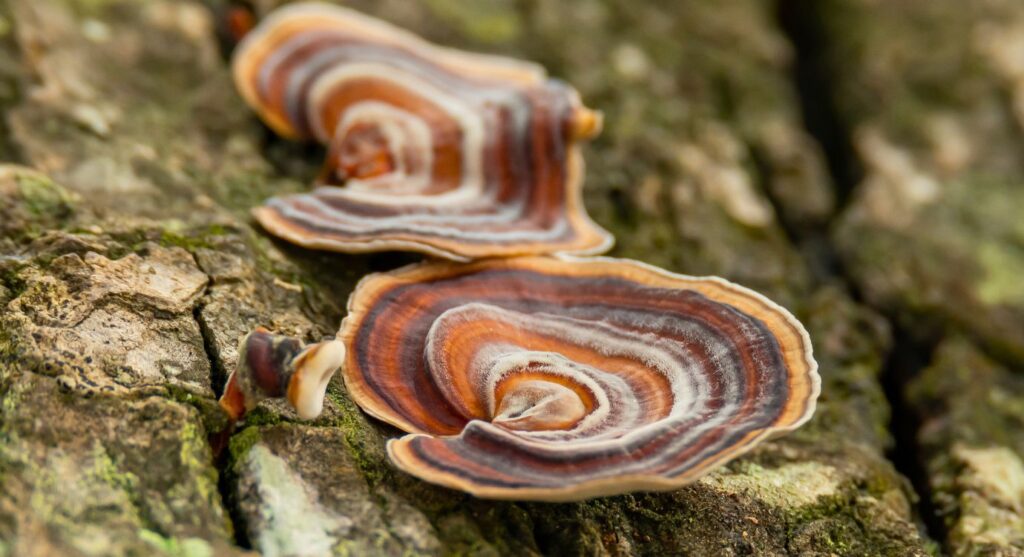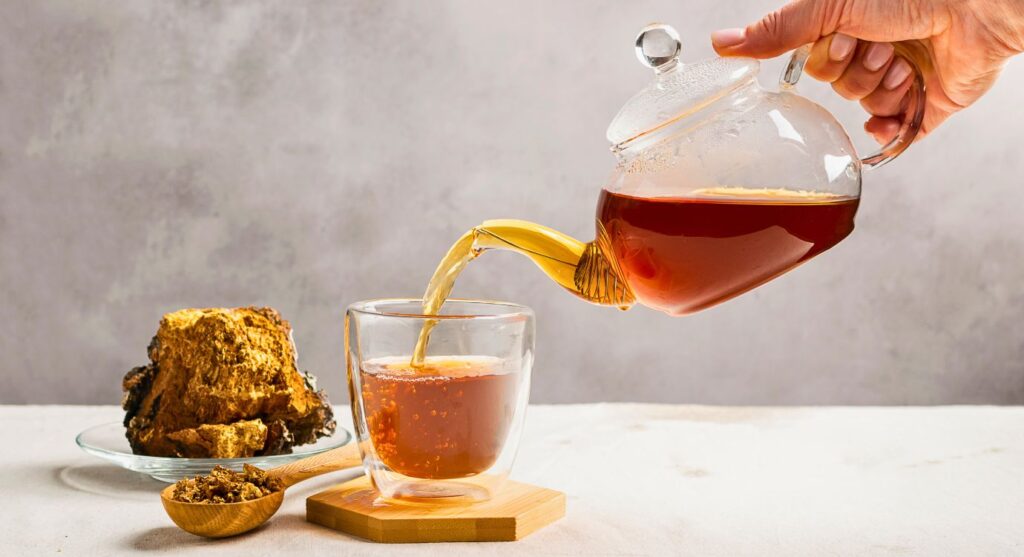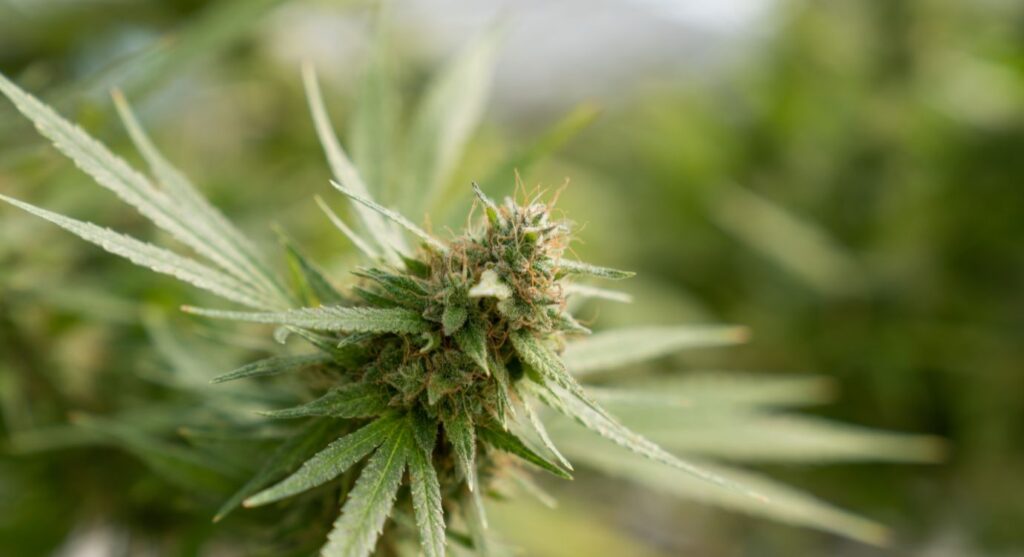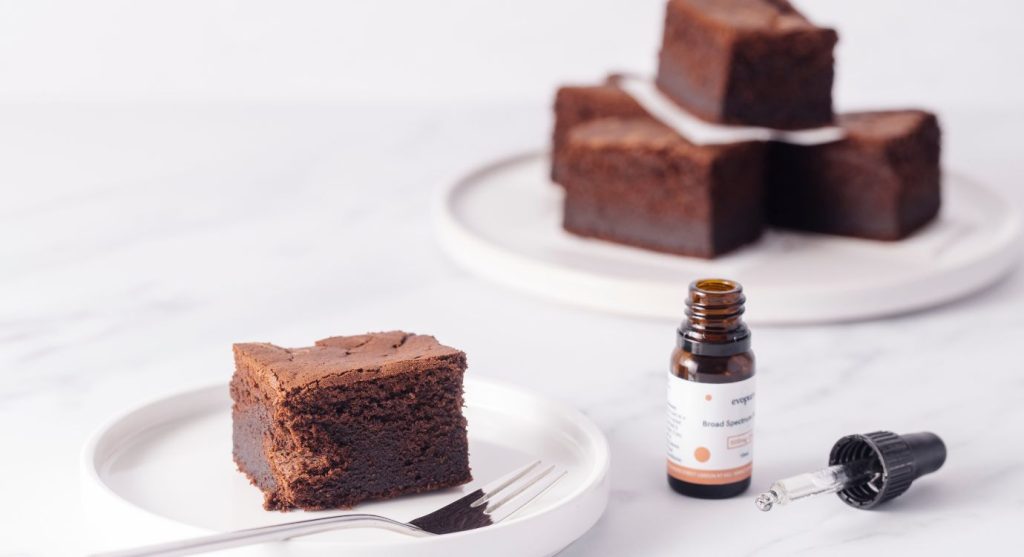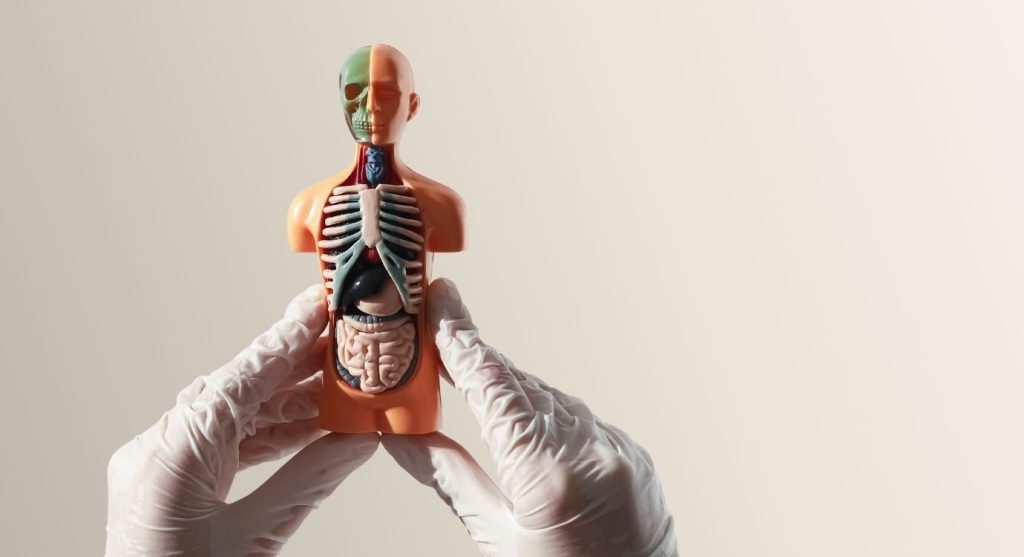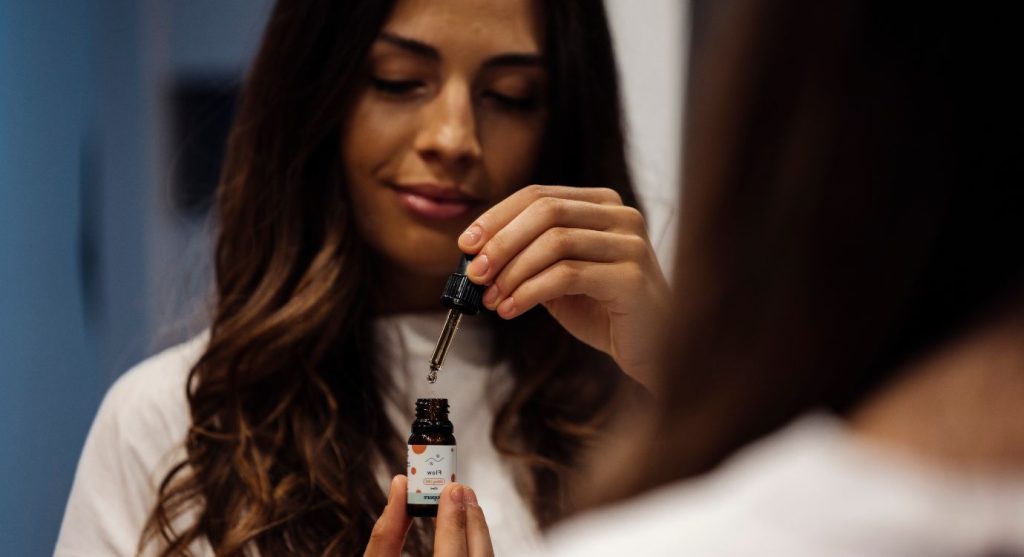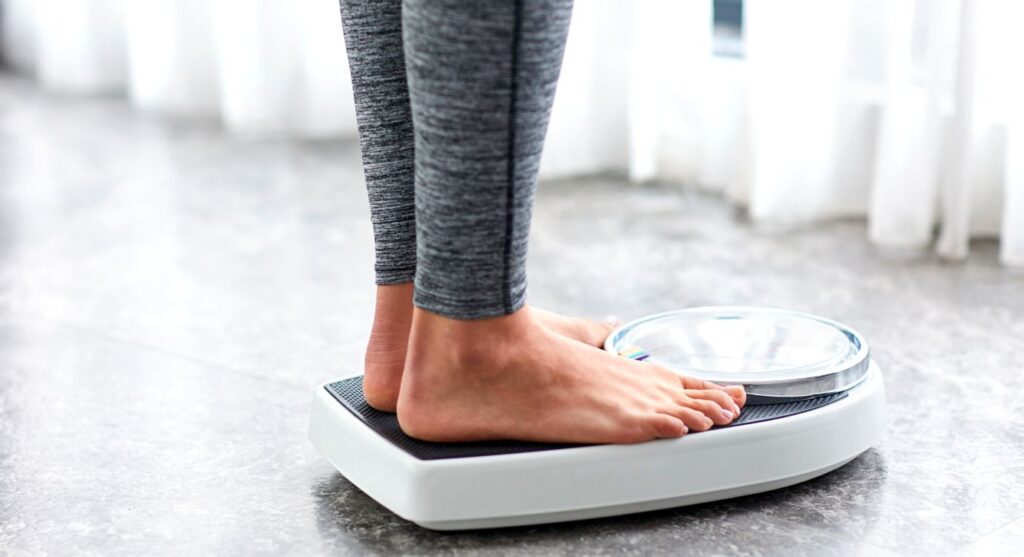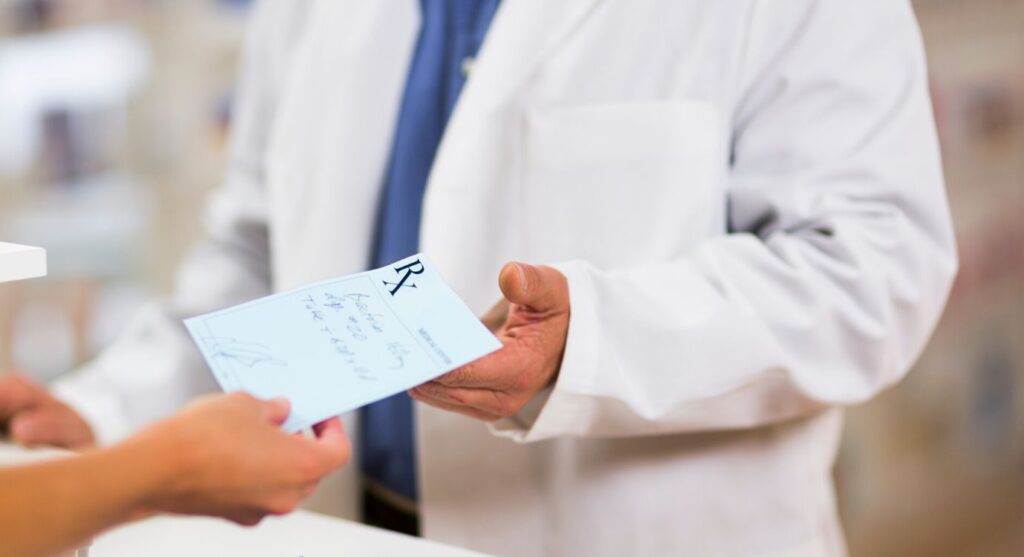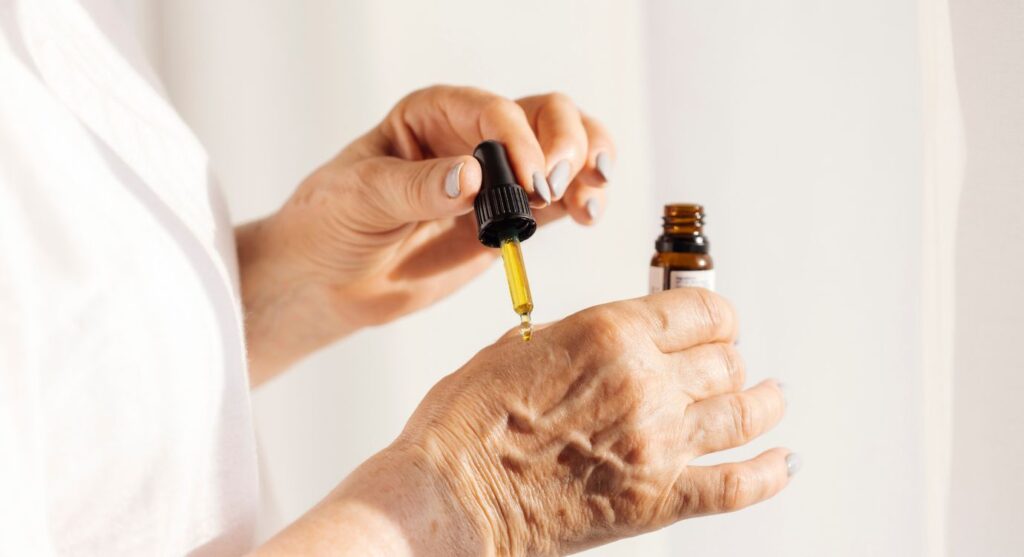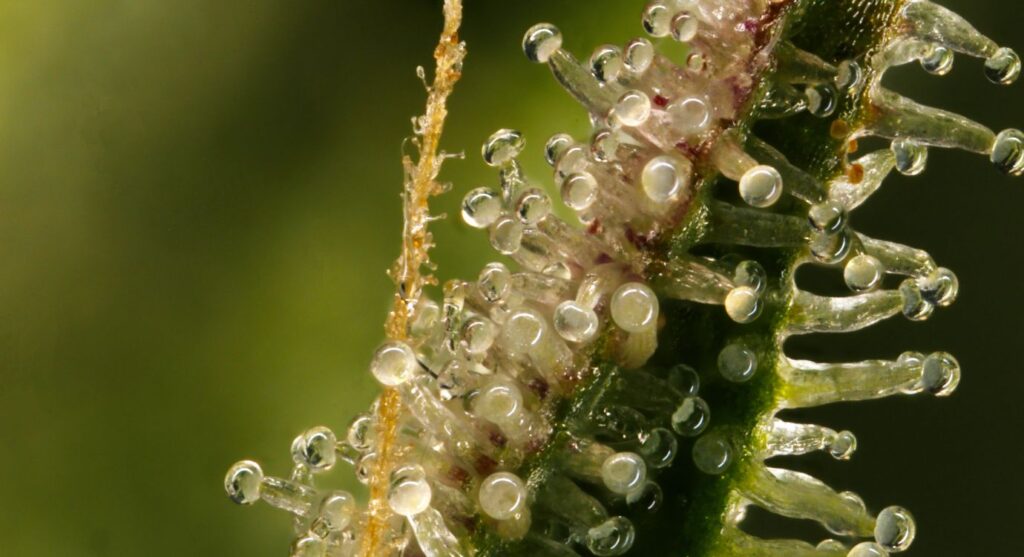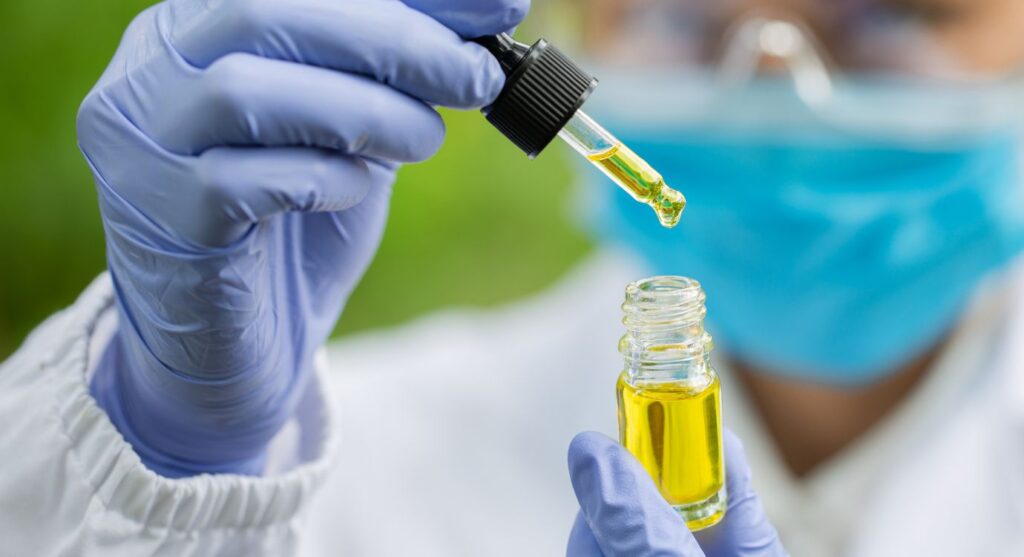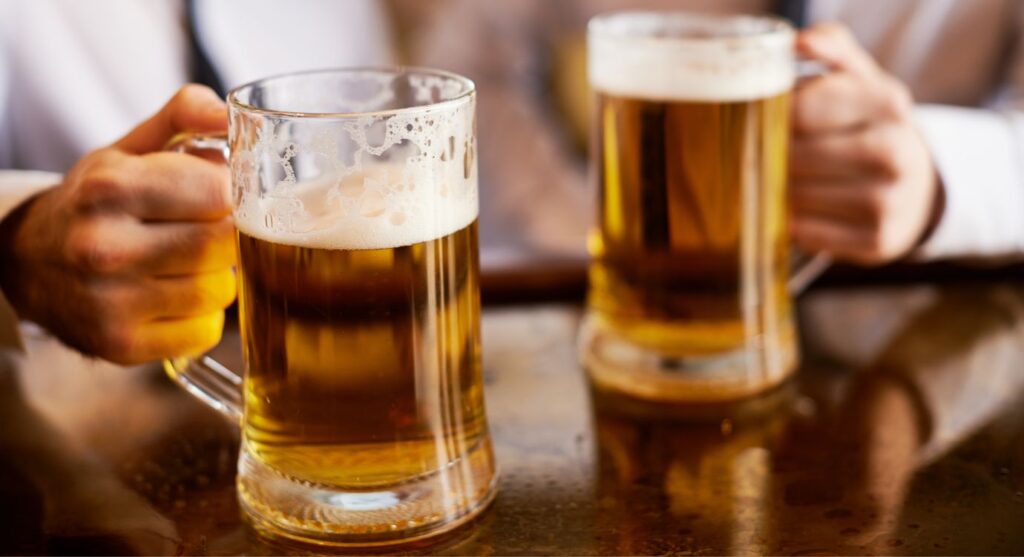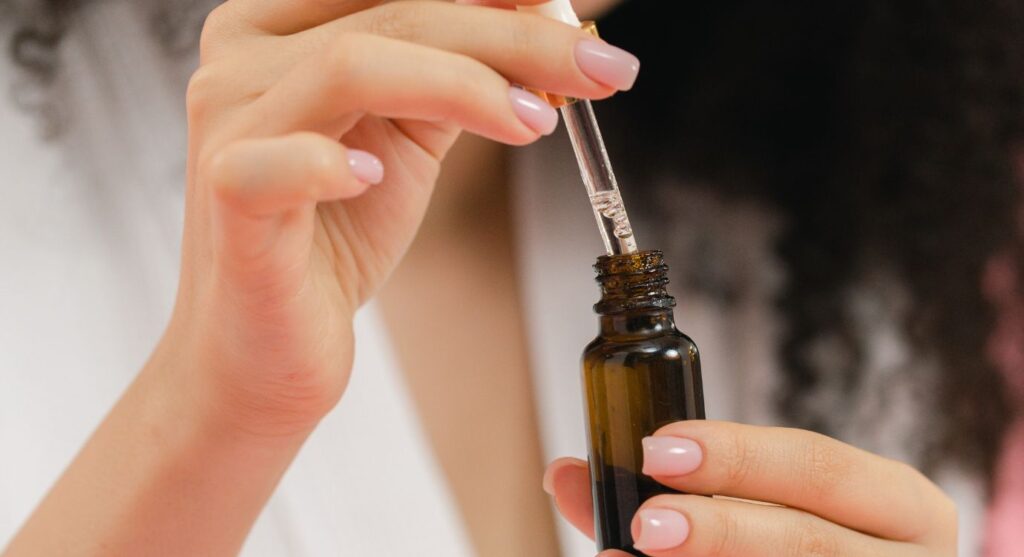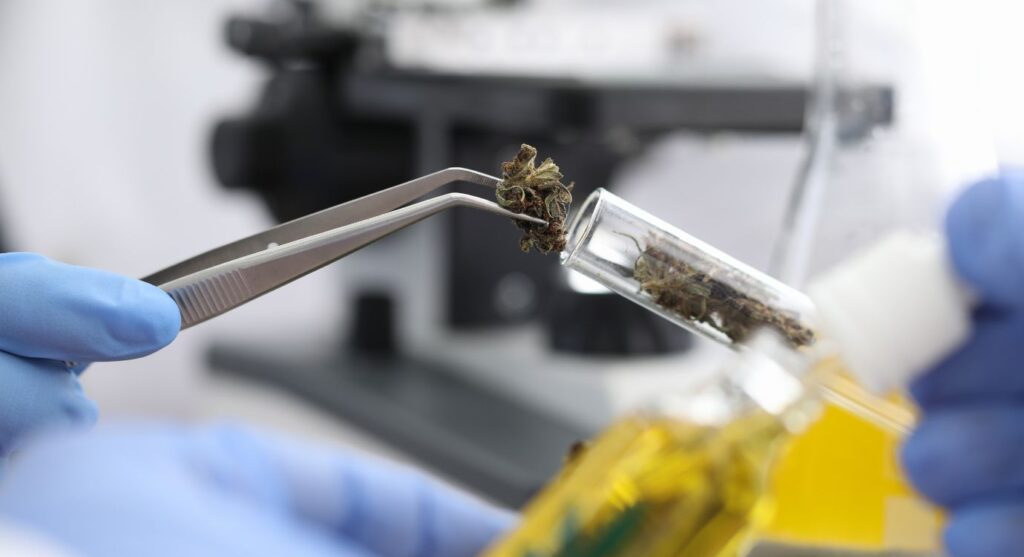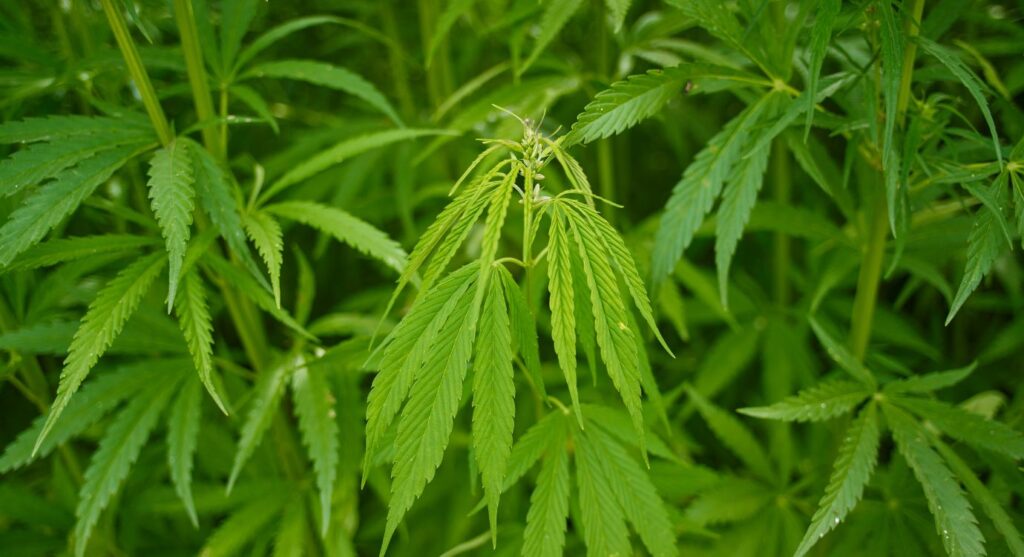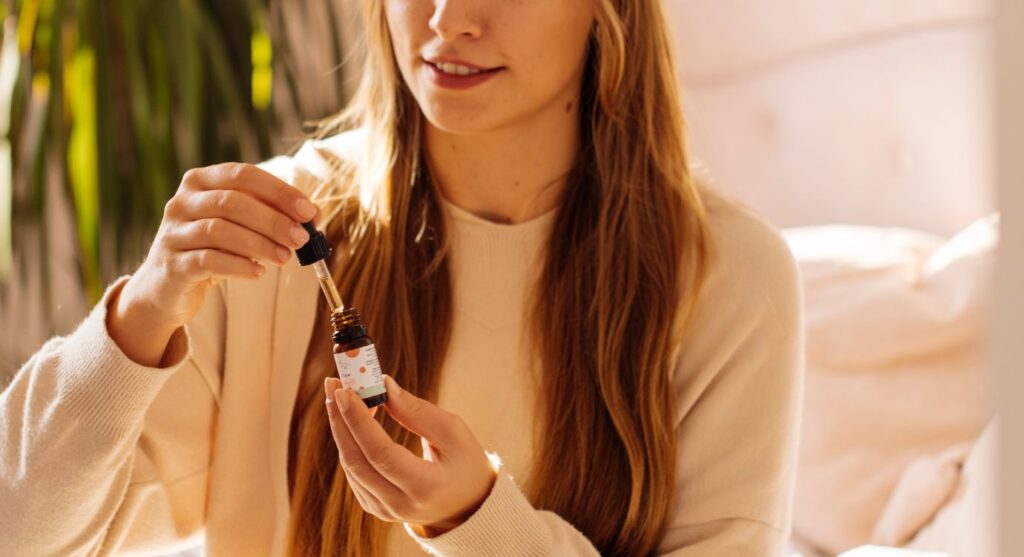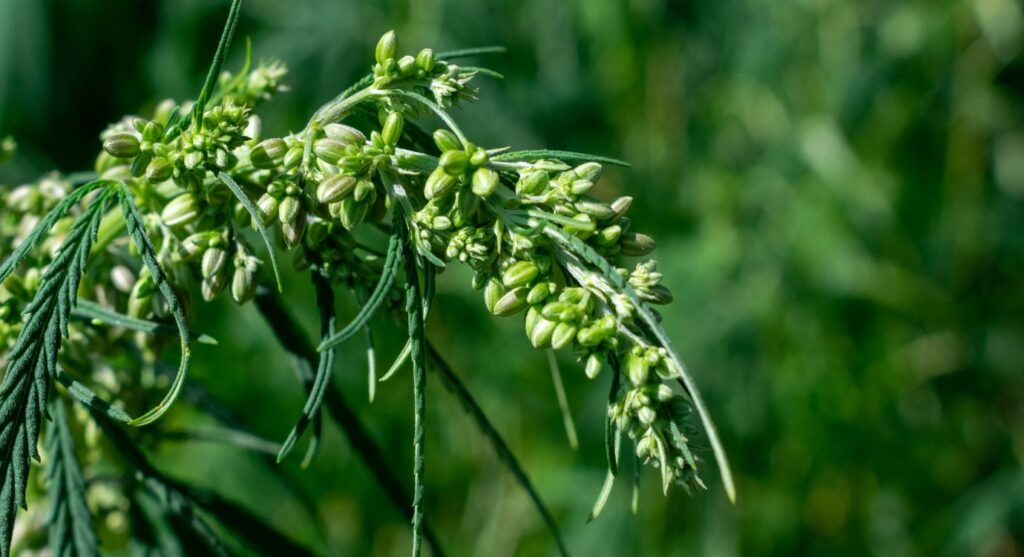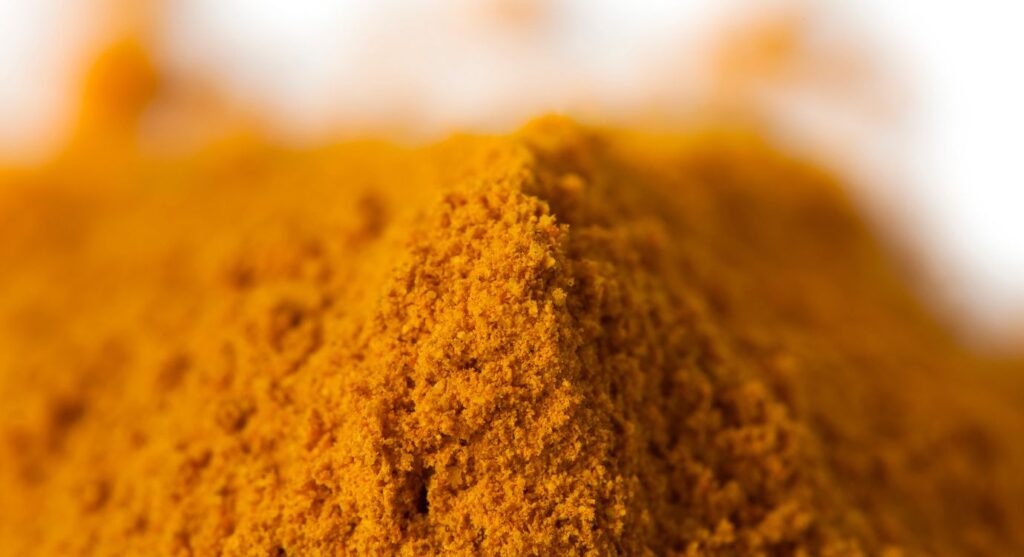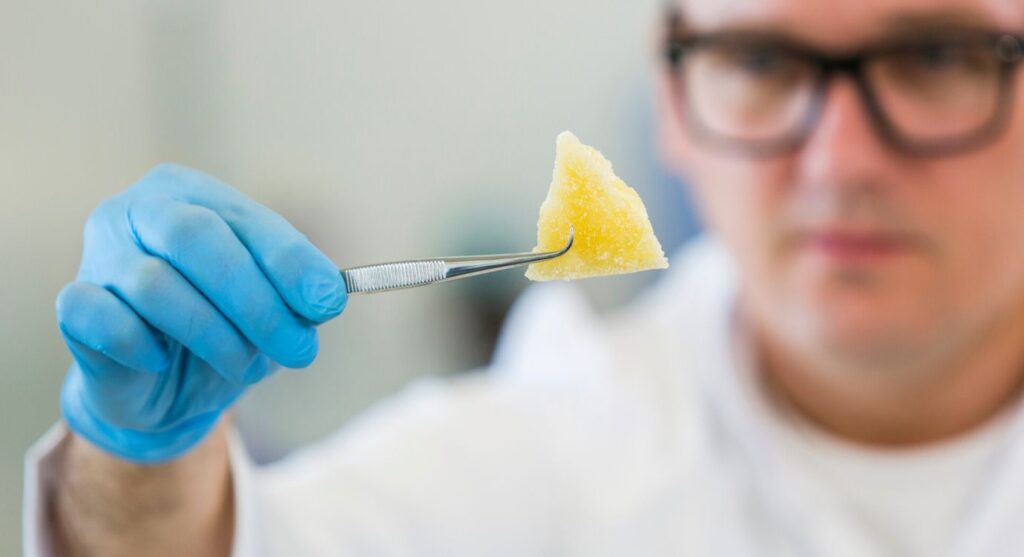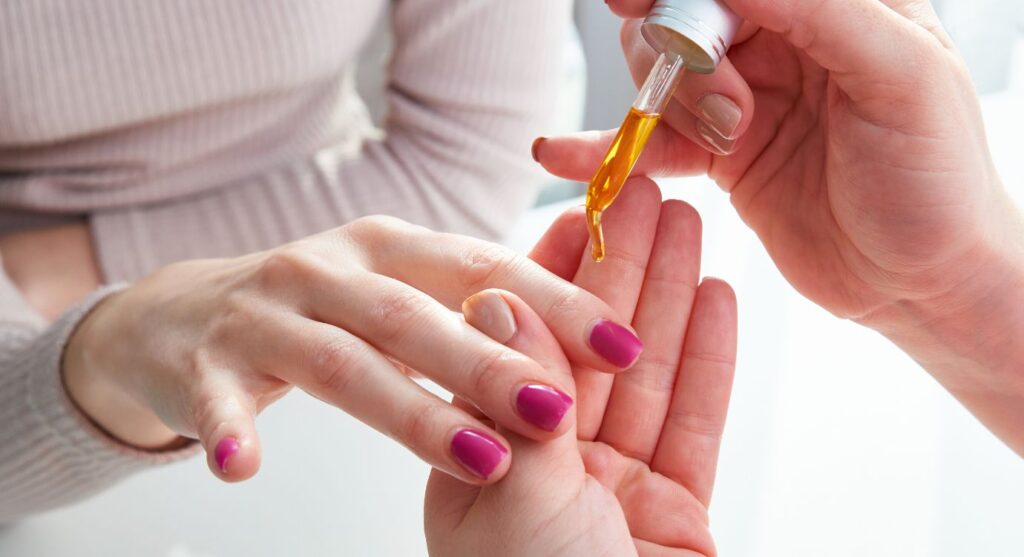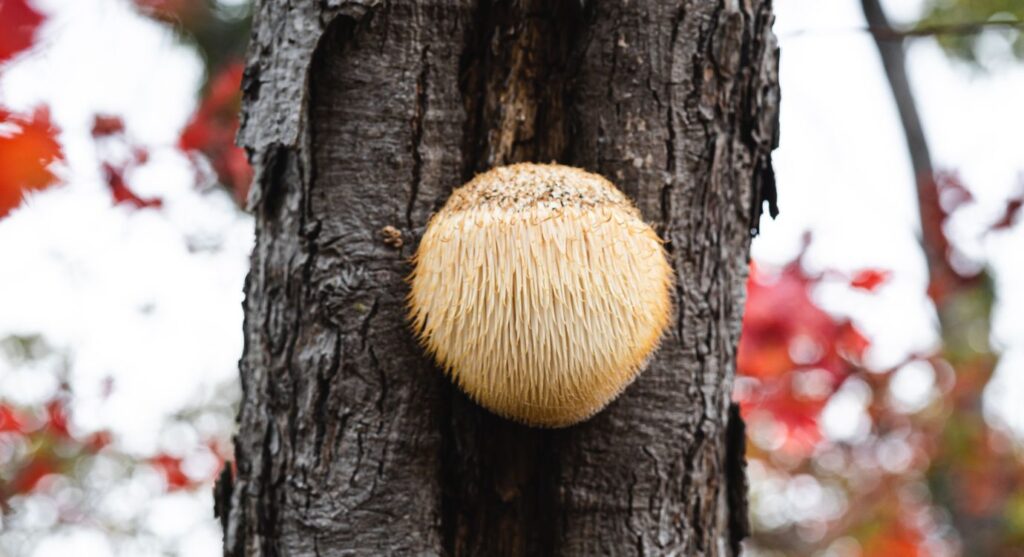Is water soluble CBD oil about to change the game?
CBD oil is available in many forms – from gummies to capsules to skincare- but perhaps the most exciting new development in CBD land is water soluble CBD.
Why? Because water-soluble CBD promises higher bioavailability, which means that higher proportions of the cannabinoid can be utilised in the body.
Water-soluble CBD can also be added to hot and cold drinks, so it’s the ideal choice if you’re not a fan of the taste of CBD sublingual drops.
However, it’s a good idea to approach any new CBD product with proper research and a healthy dose of scepticism.
So, let’s s see if the hype lives up to reality by looking at the following:
- What is water soluble CBD?
- What is water soluble CBD used for?
- Is water soluble CBD better than CBD oil?
In this guide:
What is water soluble CBD?
CBD is not water-soluble in its natural state, but it can be processed to make it water-compatible. And this is about as close to water-soluble as we can get at this stage.
The most common method of creating water-soluble CBD is called nanoemulsion.
An emulsion is a mixture of two or more liquids that wouldn’t usually mix. A great example of this is oil and vinegar. If you pour vinegar into oil, the two will stay separate.
However, if you whisk them together, the fat molecules in the oil will break up and disperse throughout the vinegar. The result is a mixture that appears uniform – and tastes delicious on salad.
Emulsifying CBD works in a similar way. Nanoemulsion involves smashing the CBD particles into nano-proportions and then combining them with an emulsifier.
This doesn’t really make the CBD water-soluble. Instead, it would be more accurate to describe it as water-compatible.
The particles of CBD are small enough to appear to dissolve in water, but the CBD does not make a solution with the water.
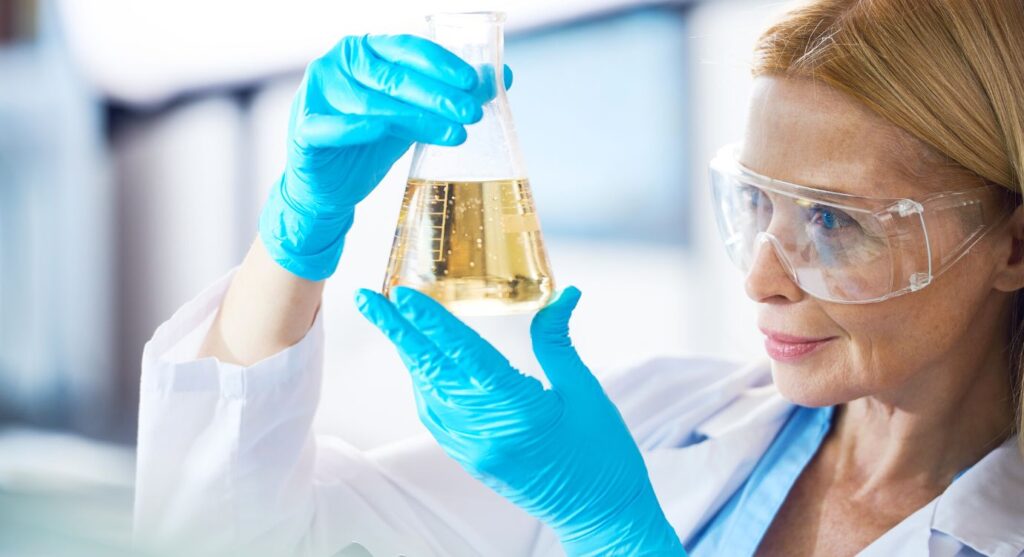

How does water soluble CBD work?
CBD needs to enter the bloodstream to work in the body, which is the start of our compatibility issues. Blood is around 92% water, and CBD is naturally insoluble.
From our example above, we know that oil and water don’t mix. So when we ingest CBD oil, the body has to break it down to access the phytocannabinoids.
When using sublingual CBD oil drops, some CBD is absorbed directly into the bloodstream via the small blood vessels in these thin mucous membranes. The rest of the CBD is swallowed and passes through the digestive tract, where the liver processes it.
What are the benefits of water-soluble CBD?
Why should I use water soluble CBD? What are the benefits? Well, there are a few…
- Water soluble CBD has the potential to taste better, and it’s easier to mix into beverages or food with water-soluble CBD.
- Water soluble CBD has a higher bioavailability than standard CBD oil, meaning a higher proportion of the good stuff can be absorbed into your bloodstream.
- Higher bioavailability of water-based CBD results in higher absorption rates – so you may notice the effects of water-soluble CBD faster.
- Water-soluble CBD also has a longer shelf life, which is great for both retailers and consumers. If water-soluble CBD offers higher bioavailability, then the average person will likely use less of it – which means they might hang on to a bottle of CBD for longer.
Read more: How to store CBD oil
Water soluble CBD benefits
Better taste
Water soluble CBD is almost tasteless and odourless.
Higher bioavailability
Water soluble CBD has a higher absorption rate than regular CBD.
Fast-acting effects
Water soluble CBD is absorbed faster than regular CBD.
Longer shelf life
Water soluble CBD is more stable and can be kept for longer
Is water soluble CBD better?
Water soluble CBD vs oil: It’s crunch time.
While there are definitely benefits to water soluble CBD – as highlighted above – it’s not necessarily everything it’s promised to be.
The most significant selling point for water-soluble CBD is its higher bioavailability. Some companies place their bioavailability as high as 100%.
However, these claims are little more than marketing hype.
The only way to achieve 100% bioavailability is through intravenous injection. Otherwise, a percentage of the CBD will be broken down by enzymes in the digestive system.
So, while water-soluble CBD may help to increase bioavailability, we haven’t quite reached 100% yet.
It’s true, though, that a water-soluble CBD will also get to work faster. This is because the smaller particles can easily pass through the mucous membranes, which will rapidly be distributed to the bloodstream.
However, these are not the only considerations in the battle between water-soluble CBD vs oil; we recommend reading through the safety concerns below.
Read more: How long does CBD take to work?
10% off on your first order
Complete this one-minute quiz and find the right products for you.
Is water soluble CBD safe?
This is where it gets sticky.
While CBD is generally considered safe for most people, water-soluble CBD takes the processing one step further.
It is formed through a chemical process of nanoemulsion, which comes with some risks and unknowns. We don’t know enough about the long-term effects of ingesting nano-emulsified CBD to determine whether it is safe.
However, we do know that ingesting nanoparticles increases the risk that the substance could accumulate in organs. Using nanoemulsion techniques on poor-quality CBD could introduce nanoparticles of contaminants, which could be hazardous to health.
In addition, there is also the risk of DNA damage, cytotoxicity and negative immune system response.
So, without further research, it’s difficult to know if nanoemulsion impacts CBD’s safety.
Another concern for any CBD customer is the manufacturing process. Provided the product doesn’t contain high levels of THC, there is still very little regulation in the sector.
So, it can be challenging to know what you’re consuming with very little oversight and few industry standards.
Therefore, we’d always advise you to source your water-soluble CBD from a reputable company you know and trust. If this isn’t possible, it might be best to steer clear until we know more about how nano-emulsified CBD works.
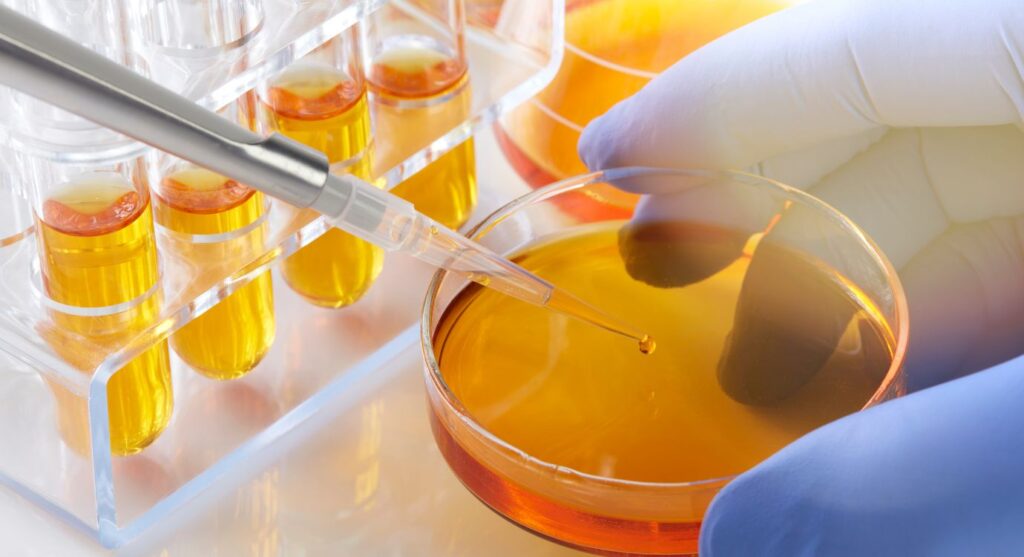

How to take water soluble CBD
Water-soluble CBD can be taken in several different ways. You can enjoy it as sublingual drops, just like regular CBD oil.
Hold the liquid under your tongue for 20-30 seconds before swallowing the remaining liquid for the best results.
Another common way to enjoy water-soluble CBD is in drinks. For example, you could add it to your morning coffee or tea or create a CBD superfood smoothie. This method would be comparable to taking a CBD capsule.
And finally, you can add water-soluble CBD to food. CBD breaks down when heated, so it would be best to add it to cold foods.
For example, you could add it to salad dressing, chilled sweet treats or create CBD butter.
How to choose the best water soluble CBD UK
If you’re looking to give water-soluble CBD a go, there are two key non-negotiables you should look out for when selecting a product.
The first is safe ingredients.
Check that the CBD is made with ingredients you’ve heard of and that are otherwise commonly found in the food and beverage industry.
As we’ve covered, there’s no way to guarantee that the nano-emulsion process is entirely safe. But if you’re looking to give water-soluble CBD a go regardless, choosing a product with safe ingredients is a must.
The second non-negotiable is quality assurance.
When choosing any CBD, checking that a product has internal and third-party testing standards is super important, but with water-soluble CBD it’s essential. The producer of the water-soluble CBD should have established quality and safety standards and documentation to verify quality and safety.
Read more: How to read CBD lab results
Final words on water soluble CBD
In the battle of water-soluble CBD vs CBD oil, it’s clear that water-soluble CBD has some profound benefits to offer – most clearly, its increased bioavailability.
However, at the moment, we would urge caution due to the lack of information about the safety of these products.
If you do decide to explore water-soluble CBD products, be wary of marketing hype and always choose a product from a reputable source. As research continues, the future looks bright… and might just be water-soluble.


